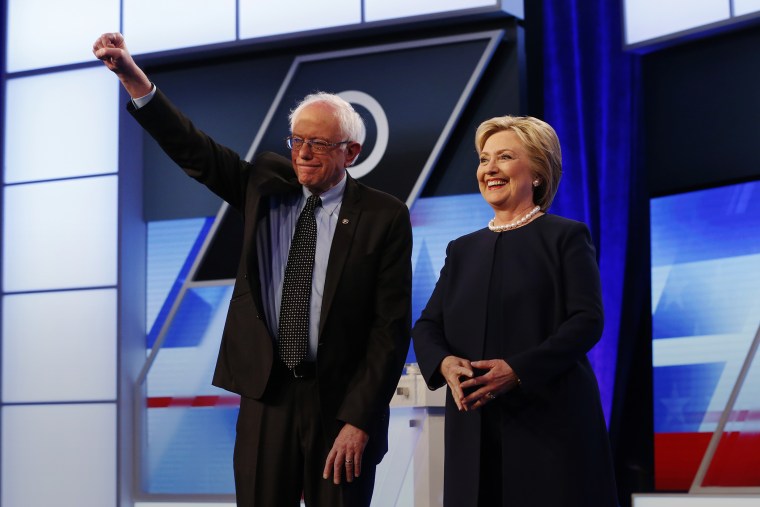After eight debates between Hillary Clinton and Bernie Sanders -- including two since Sunday -- it's tempting to think there isn't much more voters can learn from these candidates. But as it turns out, last night helped prove that there are still some lessons to be learned.
Towards the end of last night's event in Miami, for example, Univision's Maria Elena Salinas
reminded Sanders of comments he made while mayor of Burlington in which he praised Nicaragua's Daniel Ortega and complimented Fidel Castro's policies on education, health care, and societal transformation.
The co-moderator said, In South Florida, there are still open wounds among some exiles regarding socialism and communism. So please explain what is the difference between the socialism that you profess and the socialism in Nicaragua, Cuba and Venezuela." Sanders responded that his comments were intended as criticism of regime-change policies in Latin America.
SALINAS: In retrospect, have you ever regretted the characterizations of Daniel Ortega and Fidel Castro that you made in 1985? SANDERS: The key issue here was whether the United States should go around overthrowing small Latin American countries. I think that that was a mistake... SALINAS: You didn't answer the question.
I suspect for much of the country, this may not have seemed especially significant, but in South Florida, it's likely this exchange raised some eyebrows. Sanders' controversial attitudes towards figures like Castro and Ortega have gone largely unexplored in the campaign thus far, and it's a reminder that even now, voters are still learning relevant details about the candidate's past.
Clinton added soon after, in reference to Sanders' 1985 comments, "I think in that same interview, he praised what he called 'the revolution of values' in Cuba and talked about how people were working for the common good, not for themselves. I just couldn't disagree more. You know, if the values are that you oppress people, you disappear people, you imprison people or even kill people for expressing their opinions, for expressing freedom of speech, that is not the kind of 'revolution of values' that I ever want to see anywhere."
It was a mild preview of the kind of criticisms Sanders would almost certainly face in a general election, if he were to win the Democratic nomination.
Of course, this was just a brief part of a larger event, the bulk of which focused on immigration policy. Both candidates, eager to find an edge with a key constituency in an important state, went surprisingly far in the commitments they were willing to make. MSNBC's
report summarized:
Fresh off an upset victory in Michigan the night before, Bernie Sanders sparred with Hillary Clinton on immigration at a debate in Miami Wednesday night, ahead of Florida's primary Tuesday. Facing questions in English and Spanish at the debate, hosted by Univision and The Washington Post, Clinton and Sanders drew a sharp line in the sand on deportation policies, which could haunt them down the road: Both pledged they would not deport children nor undocumented adults without criminal records.
Especially for Clinton, who has gone out of her way to temper her promises to avoid unrealistic goals, last night's commitments came as something of a surprise. Over the course of the debate, Clinton said, as president, she would shield children from deportations; she'd limit deportations to undocumented immigrants with criminal records; and she'd even "try" to "bring families back together," reuniting immigrant families that have already been separated by previous deportations.
That's a
pretty ambitious, and rather specific, list of policies, especially for a candidate who's resisted commitments she worries about keeping. The promises drew applause from the pro-immigration audience in South Florida, but Clinton's vows would go quite a bit further than President Obama's policies -- and would face even tougher political resistance.
